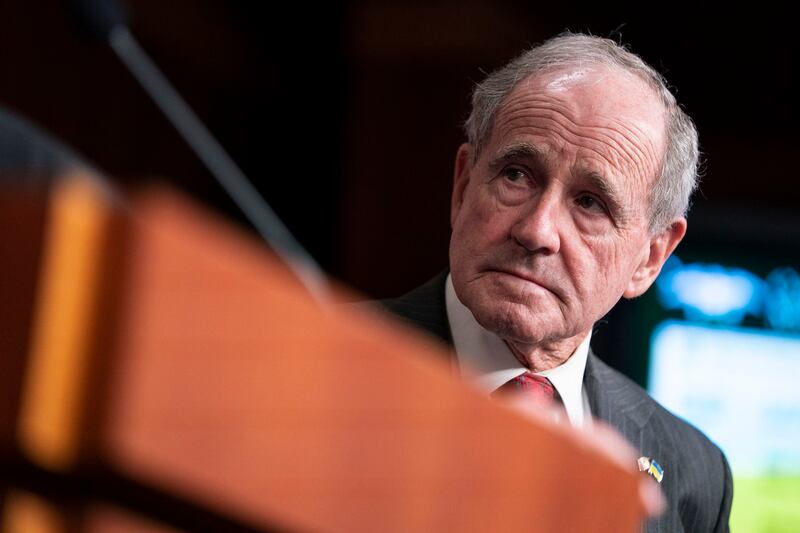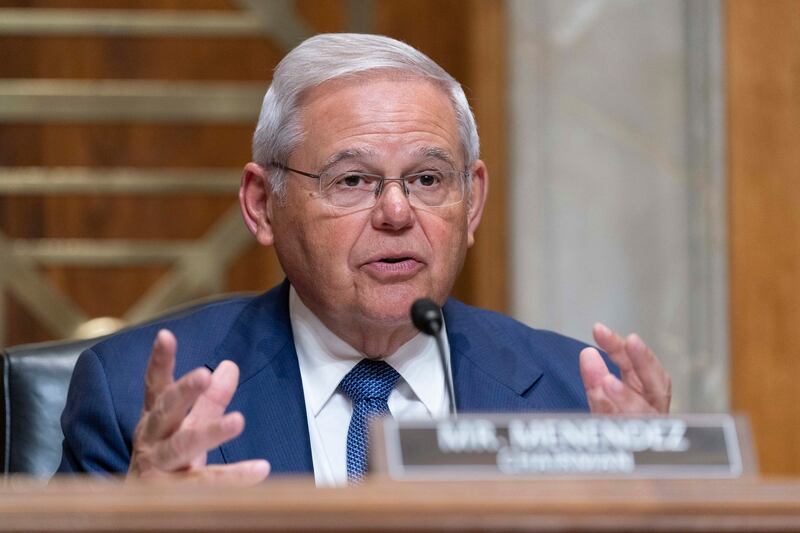Australia and the United Kingdom need to adopt more stringent controls on the use of American military technology before the United States relaxes its export licensing requirements under the AUKUS pact, a State Department official told the Senate on Wednesday.
The AUKUS security arrangement between Australia, the United Kingdom and the United States includes a long-term goal of creating a " seamless" defense industry across the three nations, but Australia has complained of a burdensome process for its companies to receive licenses to import U.S. military technology needed for innovation.
Democrats in the House have expressed concerns about the security implications of making exemptions to licensing requirements, even as Republicans have argued the two close allies should be trusted.
On Wednesday, Sen. Jim Risch, a Republican from Idaho who serves as his party’s ranking member on the Foreign Relations Committee, noted Australia and the United Kingdom are trusted to receive intelligence, and so could be trusted with military technology.
“There is a very distinct difference between the way we treat allies in the intelligence field versus how we treat them on other things, like exports, and I think it probably would behoove State … to spend a little bit of time with the intelligence community,” Risch said.

He said the current requirements were “overly cumbersome.”
"We share incredibly, incredibly sensitive and important material with the Five Eyes," he said. "I don't have the concerns that some have."
Public versus private
However, Sen. Bob Menendez, a Democrat from New Jersey who chairs the committee, said that there was a key difference between intelligence sharing and exempting countries from export controls.
“We share intelligence with government officials,” he said. “Export controls, however, control U.S. defense technology to non-government persons.” That required more careful oversight, he said.
He added Australia's spy chief, Mike Burgess, recently "warned about the extent of Chinese espionage directed at Australia," which he said should be weighed against the unwieldiness of licensing, given concerns that sensitive technology could end up in the wrong hands.
“The concerns are legitimate on both sides,” he said.

Jessica Lewis, assistant secretary of state for political-military affairs, told the committee that the State Department was “really focussed on getting Australia and the U.K. over the line” but said the process was complex given the high stakes involved in licensing matters.
“What we're talking about is license-free movement of these defense articles. That means that if you are on the list of companies or entities that can receive it, you don't have to come and ask permission to export [from the United States] a lethal weapon,” Lewis said.
“We want to make sure that if a country is trying to acquire a particular technology, it can't get around the system by going into a place where there's more room in their export controls,” she said. “It's common sense to work together to bring all of us to similar standards.”
Submarine deal
The viability of another part of AUKUS – the sale of nuclear-powered submarines to Australia – was also questioned during the hearing.
Sen. Bill Hagerty, a Republican from Tennessee, noted that the sale had been promised amid a massive backlog in American shipbuilding yards, with the U.S. Navy “25% short” of its goal of 66 submarines.
“The pace-of-making is, I've read, maybe 1.2 submarines a year,” Hagerty said. “By giving these submarines to Australia, that'll put us three-to-four years behind in our production process.”
“Looking at the Navy's most optimistic projection, they don't see realizing this goal of 66 attack subs until the year 2049 – that's before taking into account the submarines that we would send to Australia.”
But Sen. Tim Kaine, a Democrat from Virginia, called it a “chicken or an egg” problem, with Australia also promising massive investments in the U.S. shipbuilding industry to secure the nuclear-powered subs.
“Australia is going to make a historic investment in the U.S. industrial base,” Kaine said, but only “if they know that during the 2030s, we will be willing to deliver to them three to five Virginia-class subs.”
“If they make that investment, it will help us increase our pace of production,” he said. “If they don't make that investment, it will be harder to increase the pace of production.”
